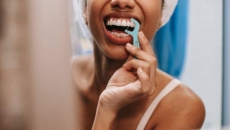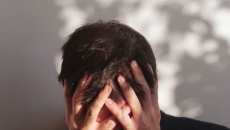Did your parents warn you against jumping in the pool right after eating? They were misguided.
In most cases, there’s no need to wait at least 30 minutes after eating to go for a swim, doctors say.
That old warning stems from worry that people might drown or struggle because blood will be diverted to their full stomachs instead of their muscles.
In reality, people still have plenty of blood flowing to their muscles after eating, said Dr. Matthew Badgett of the Cleveland Clinic. A former high school swimmer, Badgett used to eat a couple of bananas and drink some water or Gatorade before he raced.
He worries that the old warning can actually cause complications. It’s important to quench your thirst before swimming, especially on sunny days. People often don’t realize they can still get dehydrated, which can lead to muscle cramps.
“We sweat when we are in the water, we just don’t appreciate the water loss,” he said.
So, jumping in the pool or ocean after eating is no big deal for recreational swimming. But people planning to swim laps or exercise may want to let their food digest to avoid cramps, just like they’d wait before jogging.
Also, swimming after tossing back a few beers is risky. People tend to be more aggressive, less coordinated and prone to bad choices when they swim after consuming alcohol. Those factors all can cause problems when dealing with strong currents or ocean tides at the beach this summer.
“You’re just not going to be as sharp,” Badgett said.






